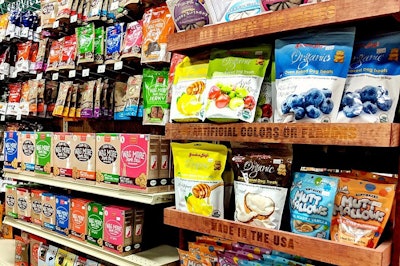
In the 2021 Association for Pet Obesity Prevention survey, pet owners shared which marketing claims most influenced their decisions to purchase specific dog, cat and other pet food.
Several of the most influential claims had similar levels of support from pet owners. Pet foods marketed as containing no by-products influenced the highest percentage of pet owners, with 29% of survey respondents. However, both pet foods sourced and made in the USA and high protein reached nearly that level at 28%.
Other pet food marketing attributes weren’t far behind. The related claims of grain-free and no soy or corn both influenced 25% of pet owners in the survey. Organic ingredients affected 24% of survey respondents.
At the lower end of the marketing claims influencing pet owners were low-glycemic ingredients at 10% and plant-based or vegan diets at 2%.
Top pet food marketing claims 2021
- No by-products 29%
- High protein 28%
- Sourced and made in the USA 28%
- Grain-free 25%
- No corn or soy 25%
- Organic ingredients 24%
- Non-GMO 20%
- Pasture-raised or Wild-caught meats 19%
- No peas, lentils, or legumes 15%
- Cage-free chickens or eggs 13%
- Low-glycemic ingredients 10%
- Plant-based or vegan 2%
Association for Pet Obesity Prevention survey methodology
The online survey was completed by 865 pet parents and veterinary professionals from October 12 to December 31, 2021. Participants lived in 47 U.S. states and the District of Columbia.
Generational representation included 25% Baby Boomers (57-75 years of age), 32% Millennials (25-44), 21% Generation X (41-56), 18% Generation Z (<25), and 3% Silent Generation (>75).














